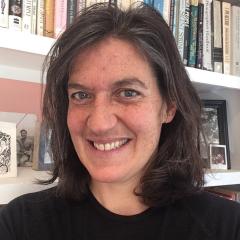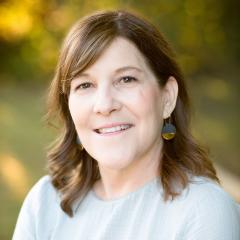

In early 2019, I decided to apply for the ASLA-Fulbright Graduate Grant because it was the right time. I had been working for several years as a non-fiction author, investigative reporter and media commentator specializing in armed conflicts and international politics. I had also completed BA and MA degrees in political science in Finland. After reading about the Fulbright Finland Foundation and its grant programs, I quickly became convinced that applying for a Fulbright graduate grant and then applying to a selective graduate school in the U.S. was exactly what I wanted to do next. In the fall of 2019, I was informed that I was selected for the Fulbright Program.
In early 2020, I received more great news: my dream school, the University of Chicago, had offered me admission to the university’s MA Program in the Social Sciences (MAPSS). I was eagerly anticipating my move to Chicago and itching to get to spend my days at lectures. My plan was to study in the Harper Memorial Library for one year straight and to delve even deeper into the methodology of the social sciences with my teachers and fellow graduate students.
Then the pandemic took over the world.
What followed was mounting uncertainty and confusion. My graduate program announced early on that the program would indeed start and proceed as scheduled, but whether the classes would be on campus or virtual or both remained unclear. I had already reserved an apartment in Chicago.
Fast-forward one year. Moving to Chicago never happened. Every single one of my classes was offered exclusively remotely. Although the experience of remote studying is different from on-campus studying, the substance of the classes, our ability to extensively interact with professors, and the intensity of the University of Chicago’s graduate programs remained unaffected by the pandemic. As global vaccination and epidemic prevention efforts are gradually bringing the pandemic under control and as I have just finalized all my coursework, I can now take a look back at what has been the most exceptional year of my lifetime and arguably the most unusual and challenging year for Fulbright in the program's long history.
Pushing through a global crisis
When unexpected and tragic developments occur, we adapt. The degree program began at a moment when the pandemic was wreaking havoc all across the U.S. Many of my fellow non-American graduate students had serious doubts as to whether they are even able to complete the notoriously arduous degree remotely, without the university staff or any of their peers present and far from the setting of the world-renowned campus of the University of Chicago.
In retrospect, I am deeply content that I opted to take on the challenge of the University of Chicago’s graduate studies during the global pandemic. I have gained invaluable new insight into several fields within social sciences and I have made lifelong friends, some of whom were my teachers and others my fellow graduate students. What was a constant throughout an otherwise chaotic year was that the Fulbright Finland Foundation was there for us grantees every step of the way. The Foundation navigated through an unprecedented situation, remaining committed to Fulbright’s foundational mission and to its grantees.
I strongly recommend the University of Chicago’s MAPSS for anyone who is determined to develop their methodological skills as a social scientist. More importantly, however, I wholeheartedly recommend applying for a Fulbright grant of your choosing. Fulbright, as the world’s leading global exchange program, offers an unparalleled opportunity for motivated individuals to grow as academics and professionals. Fulbright’s stellar performance through one of the deadliest pandemics in human history has reaffirmed their competence and efficacy.


